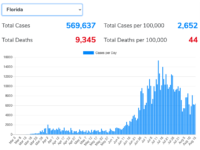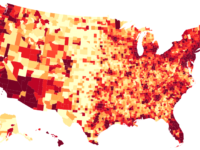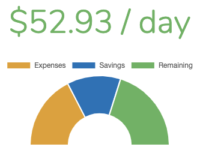How to Start The Ultimate Side Hustle – Rental Real Estate Investing

Who This Article IS NOT For
This article isn’t for the aspiring real estate tycoon with a ton of cash to burn. It isn’t for someone looking to go from no experience in real estate to owning a 48 unit apartment building in the next year. I’m also not targeting someone who wants to be just like their favorite YouTube star who promotes their skills in real estate and “just by coincidence” happened to buy in a California hub at the bottom of the housing crash (oh and they make way more money via ad monetization than they do from their properties). I can’t relate to those experiences so I’m not able to give advice along those lines. There’s a reason people say investing in real estate is how you get rich slow. It’s hard work for everyone but the already wealthy or insanely lucky.
So Who Should Read This?
I’m assuming you’re just an average Joe or Jane who isn’t terrible with their money and already has a good chunk of change in the bank (as little as $20,000 depending where you’ll be investing). Thanks to an extra-long economic expansion, there’s a plethora of people today thinking about how they can make their savings work harder for them. Finally, I’m assuming you’ve already decided rentals are something you’re interested in and you’re ready to dive in. I’ll save trying to sell you on getting into real estate (something my friends have to suffer through all the time 🙂 for a future post. If this all sounds like you, definitely keep reading!
Why Trust Me?
After 4 years of buying and renting out properties I finally feel like I’m comfortable with what it takes to be a successful beginning real estate investor. You can trust my advice because I walk the walk. I own 4 properties with a total of 9 residential units and they all cash flow other than the one I live in which breaks even (meaning my tenants there pay for my housing). I think it’s also important to know where I come from. I literally grew up in a trailer park and worked my butt off to escape a life of poverty and I continue to upgrade my life through real estate. I’m one of the most joyful people you’ll meet but I’ve done all of this despite inheriting a natural level of anxiety that’s very difficult to even put into words. All that is to say I know what it takes to succeed when you don’t have the connections, built in business-oriented mind, or a wealthy family to fall back on.
Ok, now on with the good stuff!
Run the Numbers
Doing cash flow analysis is a critical starting point for rental real estate investing. Cash flow is the amount of money left over after collecting rent, paying all the regular bills, and saving for the infrequent costs associated with the property. This is important before you even decide where you’ll be buying because there are plenty of markets that just won’t cash flow no matter what. This is especially true if you’re in a market where everyone wants to live but it’s just as important if you think you’ve found the next up and coming area to jump into. Even after focusing on a subset of the Baltimore market for years, I still need to do this step because every property is an entirely different animal. So how do you do cash flow analysis? I could spend an entire article covering cash flow analysis but I’ll try to summarize my best advice for each of the following components of cash flow:
Rent Income
Get rental comps from as many sources as you can. Use your agent, online tools like Zillow, and do it yourself so you can be confident in the number you end up using. If you come up with a range, use the bottom of that range.
Mortgage Principal and Interest
Pretty straight-forward. Plug actual (rather than ideal) terms you’ve heard from a bank into an online mortgage calculator or use the PMT() function in your favorite spreadsheet application.
Mortgage Insurance
If you’re putting less than 20% down on a property, you’ll need to consider how much mortgage insurance is going to cost. As with the mortgage terms above, find out how much you’ll actually pay. That way you can either include it in your math or maybe make the decision to increase your down payment to avoid it.
Real Estate Taxes
Also pretty simple to find from your state department for taxation. Usually they have a website for this. Zillow and similar sites usually have this info too. Wherever you get the information, you might want to add a small amount of padding to that number because this can change significantly within a few years. Especially if you’re in an up and coming area.
Landlord Hazard Insurance
And no, don’t just use homeowners insurance. Even if you’re house hacking (living in a portion of a building you rent out) you’ll want coverage that matches your use if you ever need to file a claim. Skip Geico and Progressive and the similar as they’ll be the priciest. Find an insurance broker (you’re agent can probably recommend one) who will find a much better premium for you.
HOA Fees
I’ve yet to purchase a property belonging to a homeowners association because they’re pretty rare in my market but even in that case, I always ask to be sure. You might be able to adjust your CapEx (see below) if there is one but make sure you get a copy of the bylaws and if you aren’t 100% sure what the HOA is and is not responsible for, ask!
Maintenance
Use 1% of your property value per year as a starting point and adjust it after you get a few years’ experience with how much you actually pay. I could adjust mine lower based on my experience but I prefer to keep the padding in my estimate.
Long-Term Maintenance Items (i.e. Capital Expenditures or CapEx)
These are the big items you have to repair/replace over the years. Use a spreadsheet to figure out what it would cost to replace each item on your property (stove, drywall, roof, paint, electrical… everything) and divide it by how many months you think those items should last. Add it all together and you have your CapEx. Sounds simple but there’s a reason I have an entire section devoted to it below.
Utilities
I don’t advise paying all the utilities yourself whether you’re renting out a room or an apartment in a multi-family dwelling. Nevertheless there might be some utilities you need to pay such as the common area electricity.
Vacancy Cost
Yes, this is a very very real cost. If you’re thinking of using a manager, ask them what is typical for the neighborhood you’re looking at. When I started I saw plenty of resources recommending 5%. HA! In my city, it’s more like 10-15% unless the unit is in a really hot area (and then the difference will more than be made up for by a premium on the purchase price).
Management Fee (even if you’re the manager)
Unless property management is your dream job don’t treat it like you’d do it for free. And if you are intending to hire a company to do the management, understand how their fee structure works. Usually they take a percentage of the monthly rent (varies a lot but usually 8%-12%) and then a one-time percentage for filling a vacant unit (usually 50%-100%). If you do find a company that advertises 8% monthly and 50% re-leasing fees, one of two things are true: they hide all their fees in their management agreement (which you should ask for ahead of time), or they will drive your property into the ground with their ineptitude. Again, do the math using all the fees in the management agreement to find out their effective rate. If it’s under 10%, your math is either wrong or you’ve found the wrong manager.
Expenses (Like Everything in Real Estate) are Local
It makes sense to cover this next because after going through all those expenses, there’s even more to consider when it comes to your cash flow analysis. Every single market I’ve looked at comes with some sort of uniqueness that makes the expenses in one or more categories higher than you’d expect. In some cases entirely new categories might need to be included. I’ll use my main market, Baltimore, MD as an example but understand this is likely true of your target market as well:
- Baltimore, like a lot of cities, requires safety and lead inspections for rental properties that you front the cost for. The laws are constantly changing here but you can’t count on any changes to rental rules to benefit investors.
- Due to an aging, inadequately maintained water/sewer system, water bills in Baltimore are significant to say the least. It’s not unheard of for water to surpass your other utilities.
- Baltimore is known for its high taxes but it’s not just income tax. Property taxes here are higher than anywhere in the region and most cities in the US. You may see low average rates referenced in some news articles but those don’t apply to investment properties.
- Baltimore has a trash problem and there are several swaths of the city which have voluntarily enacted an extra property tax to do what the city can’t. These are all pretty cheap but an expense nonetheless.
- Plenty of places in Baltimore still sit on rented land which is a leftover from the days of serfs and lords. Well today the (land)lords are the serfs and pay rent on the rentals they own. The rent is super cheap and you can always buy the owner out (plenty are MIA though so you might never pay anything). Either way it’s a possible extra expense.
Pick any other real estate market and I’ll bet you’ll find something that makes doing cash flow there different from anywhere else. Basically, ask around and do your research to find out what makes your little snowflake of an area special 🙂
CapEx is More Than You Think it Will Be
This part of cash flow deserves to be revisited. I’ve seen blogs recommending as low as 1% of the property value per year as an estimate for CapEx (separate from regular maintenance). That is incredibly misleading even for a single family house. If you buy good new construction, that might be the case for the first 5-10 years, then everything will start wearing out all at once and you’ll adjust your number real quick.
Seriously, don’t use any percentage or rule of thumb you found online for this. Literally list out each appliance and look up the cost yourself including shipping and installation. If you don’t know for sure, ask how much a roof replacement costs in your area and look up how long the roof should last (can vary greatly on the type). Do this for everything. The number you come up with will likely surprise you. With experience, you may come up with your own rule of thumb to help you in future analysis rounds but those rules are NOT transferrable to someone else in a different area and with a different set of resources/expertise. Even in a city with some uniquely expensive monthly costs like Baltimore, CapEx can beat them all.
Go Slow
I made the mistake of buying two properties back to back when I first started out. Both of them turned out to be great deals but that was partly luck and could have easily just broken even because I wasn’t experienced enough yet to do cash flow analysis accurately.
The point here is to take your time. When you run the cash flow numbers on your first hundred properties and find THE ONE, take a breath and walk away from what you’re doing for a week or two. If you don’t, you might feel like you have to jump in because a deal like this might not come along ever again! I promise you that feeling is completely normal but also an example of your reptilian brain telling you a gigantic lie. Though the feeling of missing out on an awesome deal will never completely go away, time and experience will dull it a bit so you can make more rational decisions.
You Only See Analysis Paralysis in Hindsight
On the flip side of taking your time is something else I dealt with before ever buying my first rental property. Analysis paralysis is getting stuck running the numbers, talking to people about eventually buying something, and generally making sure you are 100% prepared for everything that might come up during the purchase and management of a property. I’m still not at that point and likely never will be. At some point you just have to start somewhere and learn as you go.
It took me about 8 months from the time I started looking at properties to the time I made my first offer. Though I’m glad I took the time to be sure real estate is where I wanted to invest, it could have easily lasted 8 years instead of 8 months. I routinely hear acquaintances talk about real estate in the same way I would have during that initial period and then hear them do it again a few months later. If you need to err on the side of going too slow or too fast I’ll say to go slower every single time but being aware of possibly getting stuck in a loop can make a big difference. For me, all it took was reading an article like this one that mentioned analysis paralysis for me to get off my butt.
House Hack If At All Possible
House hacking is simply living in a portion of a property you rent out. I’ve lived in my rental properties from the beginning and because of the perks, I have no plan to change that anytime soon. The benefits of having your tenants pay your rent is an obvious one but there’s more than that.
When you live in a property, you can’t ignore the things your tenants deal with on a daily basis. For example, it might be pretty easy to ignore the downside of not having washer or dryer in a multi-family building, but I’m willing to bet if you have to put up with it yourself, you’ll reconsider that choice. This is something that’s hard to put in a spreadsheet but your properties will be of a higher quality if you have to live there.
Also, living in your property allows you to become an expert on all of its quirks. When you move into your next rental property and a tenant calls about a pipe bursting and flooding the living area, you can immediately walk them through shutting off the water and possibly save a ton of money. That’s because you didn’t just go there for an inspection and remodeling. You lived there and you know the water shutoff is hidden behind a wall in a basement closet that you’d only find if you knew it was there (personal experience).
Finally, there are significant financing benefits to living in your rental property. I can easily put just 3.5% down on a property if I wanted but there’s no bank I know of that would allow that kind of leverage on a non-owner occupied loan. I listed this last because there’s the downside of paying mortgage insurance and having a larger loan, but it’s still an advantage of house hacking.
Find a Bank Local Investors Use
Big banks like Wells Fargo and SunTrust and the like are looking into selling your loan before you get to the closing table. They have no interest in keeping your loan on the books because there’s more money for them in origination and getting it out of their hands as soon as possible. To make that process easy for them, they strongly prefer all loans to fit within very strict guidelines. Hearing you HAVE to put 20% down even on an owner-occupied property is pretty common unless you ask for a specific loan program. Interest rates can also leave a lot to be desired at these big banks. This is all to say that you should absolutely shop around. While doing your other due diligence, you’ll be talking to plenty of people in the business so don’t hesitate to ask who they use or who they hear investors using. Your agent is another source for which banks to contact but understand that’s likely a referral based on a kick-back to your agent so don’t be too surprised if their loan terms suck.
Don’t Be Afraid To Fire Your Manager (Even If It’s You)
Although I 100% recommend managing your properties yourself at some point, it didn’t take me long to learn that I’m terrible at managing my rental properties. I’ve never been late with a single bill in my life so let’s just say I don’t have the requisite finesse to work with non-paying tenants (and my default trusting nature during screening makes that more likely). Similar to not relating to people who have no personal finance skills, I also have no patience for people with poor communication or time management skills. Unfortunately, that covers nearly every reasonably priced contractor and tradesman I’ve met. I could go on, but it was clear to me early on that unless I was running a team of my own to manage my properties, I needed to hire out most of that work.
The point here is that you should know what you’re good at and what you aren’t. Chances are you can leverage what you’re good at and use the savings to compensate for the rest. As an example, I’m a software developer so running the numbers and putting together spreadsheets that let me do cash flow analysis of an entire city of available properties with a single click is a breeze. I can create tools that automatically generate rental comps based on very limited information so I spend little time doing that sort of work. Because of these skills, I can spend the money I save hiring a great property manager until I have enough properties to support a team of my own. It makes way more sense for me to spend my time at the day job I love making more money to invest with rather than chasing down unreliable tradesmen. If instead, you’re a wiz at building a team of contractors and love talking to people no matter the situation, then you should probably consider leveraging more of your time on self-managing. Especially if you’re not a high earner. It’s a balance that is unique for each investor’s situation.
If you do decide to hire a property manager, know that you will still need to manage the manager. They likely have a ton of experience you can leverage but don’t hesitate to question anything they do. It’s your asset and your responsibility. And if they aren’t doing the job to your standards even after talking with them about what you expect, find someone else who will. I went through 3 property managers before I found the right one for me. As expected, I still need to manage them but it takes far less of my time.
Not Easy But Worth It
If you’ve made it this far, well THANKS! But also, you have a pretty good summary of everything I learned during the first 4 years of me investing in rental properties. By far there are easier ways of investing but for the right person, it definitely beats parking all your money in an investment account. I hope you learned at least one thing and feel like you’re one step closer to jumping into your first rental property purchase. I plan to write more articles going into some of the more complex topics I talked about here but this is a great overview. I know there are plenty of resource out there with this type of information but I’ve learned that it’s difficult to find all of it in one place and in many cases, it’s being given by someone who isn’t even actively purchasing properties anymore. If they ever were in the first place. Again, thanks for reading and I’ll catch you in the next one 🙂





